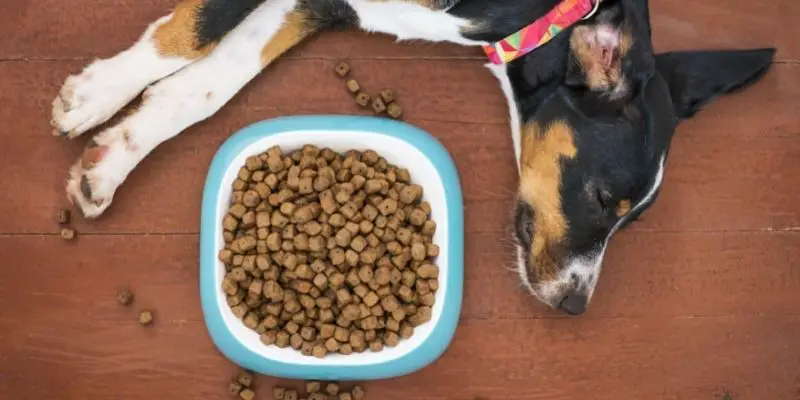There are so many common causes of diarrhea in dogs: they can eat rotten food from a trash can and suffer the consequences, it can be stress, parasites, it can be a sign of severe disease. But can a change in food cause diarrhea in dogs too? Let’s try to figure it out.
Do you have a specific question about the subject? Then use the table of contents below to jump to the most relevant section. And you can always go back by clicking on the black arrow in the right bottom corner of the page. Also, please note that some of the links in this article may be affiliate links. For more details, check the Disclosure section at the bottom of the page.
Here's what we'll cover:
Causes of diarrhea due to diet in dogs
During the first week or so after switching to fresh food, pet parents may notice changes in their dog’s excrement consistency. While some people may have firmer stools, others may have diarrhea and need to go more frequently due to an altering microbiota.
Changing your dog’s food too quickly can induce diarrhea if the digestive tract does not adjust to the new food. Allowing your dog to overeat or consuming garbage might result in diarrhea. A food allergy or intolerance can result in gastrointestinal distress and diarrhea.
Treatment of diarrhea due to diet in dogs
Many types of chronic diarrhea may necessitate fluid treatment to prevent dehydration. This may require a stay in the veterinary hospital until diarrhea stops and the risk of dehydration has passed. Anti-diarrhea medication may be provided as well.
Food may have to be withheld for at least 24 hours. If they are not already dehydrated, small amounts of water will need to be given often to keep them hydrated. After 24 hours, a bland diet can be introduced. If there is no further diarrhea, your dog can gradually return to its regular food.
Suppose your dog has an allergy or sensitivity to a component in their food. In that case, their diet will need to be permanently altered to avoid the problematic element. Your veterinarian can recommend a meal that does not contain the ingredients causing your dog’s diarrhea.
Treating diarrhea in puppies
The reason for your puppy’s diarrhea determines the treatment. Mild diarrhea caused by dietary change usually clears up with the addition of a bland diet. Still, it’s always good to visit your vet about at-home treatment choices and rule out more severe causes, especially if diarrhea lasts more than a few hours. Ensure your puppy has lots of fresh water, as even minor diarrhea might dehydrate him.
How to switch & transition to a new dog food?
Changing your dog’s diet too quickly might result in gastrointestinal discomfort, such as vomiting, diarrhea, and a loss of appetite. When changing your dog’s food, you should do it gradually, giving your dog’s system time to acclimatize to the change. These adjustments should ideally take place over 5-7 days. You will gradually add more and more of the new food into your dog’s current diet during this transition by mixing it in. A decent diet transition for most dogs will look like this:
Day 1 consists of 25% new diet and 75% old diet.
Day 3 50 percent new diet, 50 percent old diet.
Day 5 consists of 75% new diet and 25% old diet.
Day 7 Completely new diet.
Some dogs may require a lengthier transition period, especially those with sensitive stomachs, food allergies, or other gastrointestinal problems. The key to a successful diet transition is to keep track of your dog’s specific reaction.
If your dog exhibits any alarming indicators throughout the diet transition, such as changes in appetite, vomiting, or diarrhea, you should proceed with caution. Suppose you have progressively transitioned your dog, and he is still suffering stomach trouble. In that case, it is best to check with your veterinarian. In some circumstances, switching to a different diet may be necessary.
Thanks for the blog graphics: Canva.com

Thanks for the blog graphics: Canva.com
Doghint.com is a participant of several affiliate programs. The list includes (but not limited to) the following: VigLink, Refersion, ShareASale, and Amazon Services LLC Associates Program, an affiliate advertising program designed to provide a mean for us to earn fees by linking to Amazon.com and affiliated sites. Doghint.com does not intend to provide veterinary advice. All published articles are meant for informational purposes only and not substitute the professional veterinary consultation.


